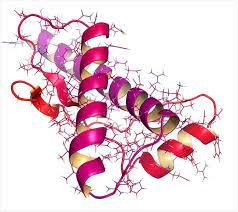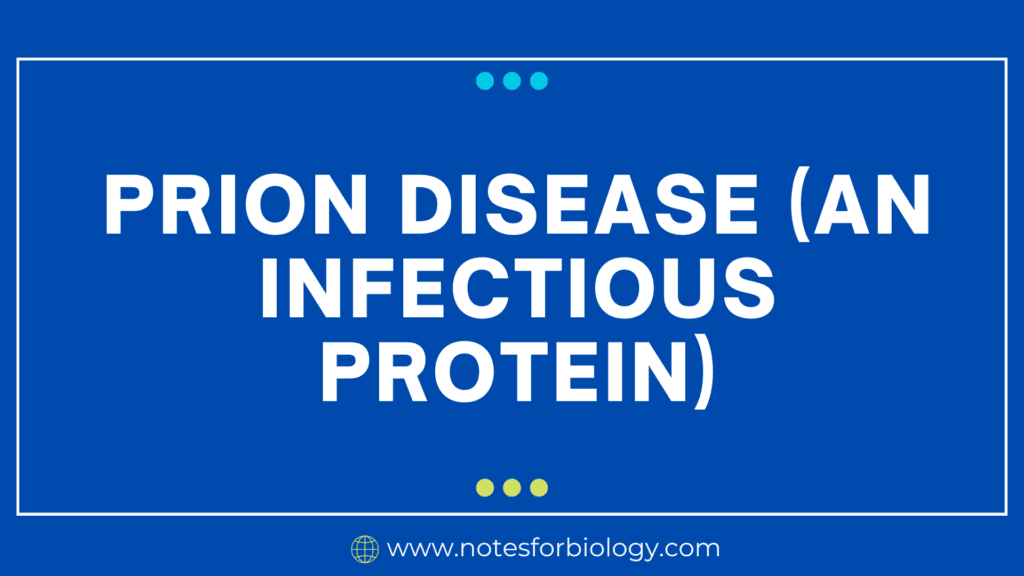Prion disease are a fascinating and frightening group of neurodegenerative disorders caused by prions. These are misfolded proteins that can induce other normal proteins to misfold as well, triggering a chain reaction that ultimately damages the brain.

Here’s a breakdown :
Table of Contents
What are prions?
Misfolded Proteins: Prions are misfolded versions of a normal protein found in the brain, called the prion protein (PrP).
Infectious Agents: Unlike viruses or bacteria, prions are not living organisms. They are essentially self-replicating protein structures that can spread from one individual to another.
Resistant to Degradation: Prions are incredibly resistant to heat, radiation, and disinfectants, making them very difficult to destroy.
How do prions cause disease?
Misfolding Chain Reaction: Prions can convert normal PrP proteins into their misfolded form. This creates more prions, which in turn trigger further misfolding, leading to a cascade of damage.
Brain Accumulation: The misfolded prions clump together in the brain, forming aggregates that disrupt normal brain function.
Neurodegeneration: This accumulation eventually leads to the death of brain cells, causing the characteristic symptoms of prion disease.
Types of Prion Diseases
Creutzfeldt-Jakob disease (CJD): The most common prion disease in humans, usually affecting people over 50 years old.
Variant Creutzfeldt-Jakob disease (vCJD): A rare but fatal disease linked to the consumption of contaminated beef products.
Gerstmann-Straussler-Scheinker syndrome (GSS): A rare genetic prion disease that causes a slow and progressive decline in cognitive and motor abilities.
Fatal familial insomnia (FFI): A rare genetic prion disease characterized by severe insomnia and other neurological symptoms.
Kuru: A prion disease that was once prevalent in the Fore people of Papua New Guinea, who practiced a ritualistic form of cannibalism.
Symptoms of Prion Disease
Cognitive Decline: Memory loss, dementia, and confusion.
Motor Problems: Difficulty walking, coordination problems, and tremors.
Behavioral Changes: Mood swings, personality changes, and aggression.
Sleep Disturbances: Insomnia, nightmares, and sleepwalking.
Diagnosis and Treatment
Diagnosis: Diagnosis is based on clinical symptoms, brain imaging, and testing for the presence of prions in cerebrospinal fluid.
Treatment: There is no cure for prion diseases. Treatment focuses on managing symptoms and providing supportive care.
Prevention
Genetic Testing: People with a family history of prion disease can get genetic testing to determine if they carry the gene for the disease.
Avoiding Contaminated Products: The risk of vCJD is reduced by avoiding consumption of contaminated beef products.
Blood Donations: People at risk for prion diseases should avoid donating blood.
Research and Future Directions
Understanding the Misfolding Mechanism: Scientists are researching the mechanism by which prions misfold and spread.
Developing Therapies: There are ongoing efforts to develop therapies that can prevent or slow the progression of prion diseases.
The field of prion disease research has significant applications outside of neurodegenerative illnesses. Gaining insight into the mechanisms behind prion proliferation may help explain other protein misfolding disorders including Parkinson’s and Alzheimer’s. In addition, the distinct infectious characteristic of prions prompts inquiries concerning the nature of “life” itself and the possibility of other biological agents.
In the field of medicine, prions disease—a debilitating brain condition brought on by misfolded proteins—remains a fascinating and complicated mystery. Even while we now know a great deal about the mechanisms behind prion proliferation and disease progression, there are still many unanswered questions, which motivates further investigation and study. Prion research is making progress, even if there is still much to learn. This gives promise for a better understanding of these debilitating diseases and, eventually, for the creation of efficient remedies.
Frequently Asked Questions(FAQ)
What are prions?
Prions are misfolded versions of a normal protein found in the brain, called the prion protein (PrP). The misfolded prions clump together in the brain, forming aggregates that disrupt normal brain function.
What are Prion disease?
It is a fascinating and frightening group of neurodegenerative disorders caused by prions. These are misfolded proteins that can induce other normal proteins to misfold as well, triggering a chain reaction that ultimately damages the brain.
Related Articles

